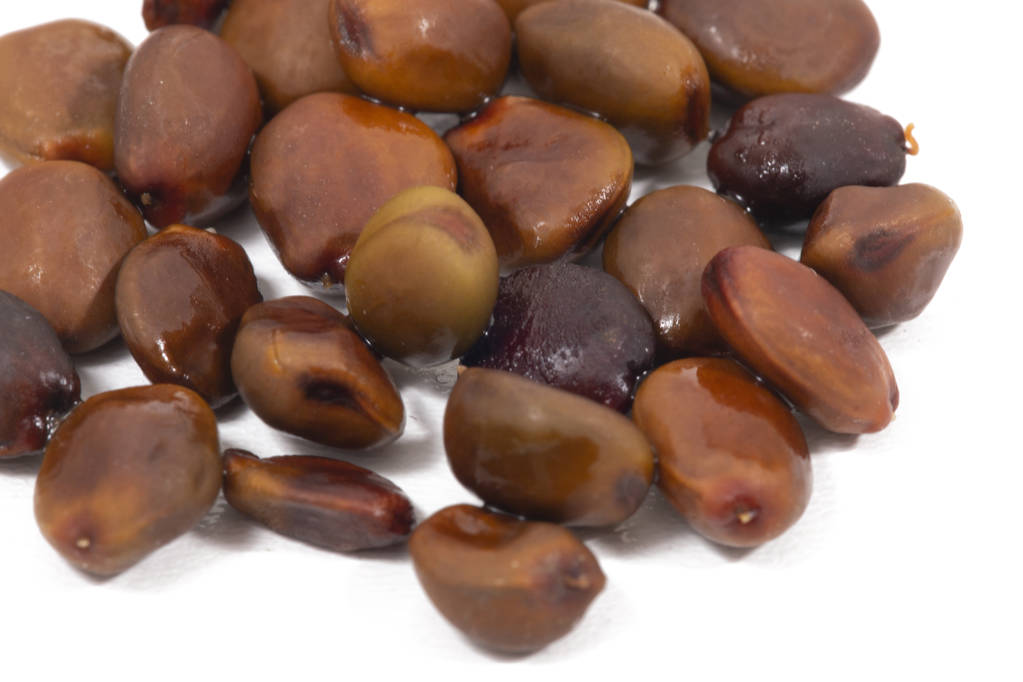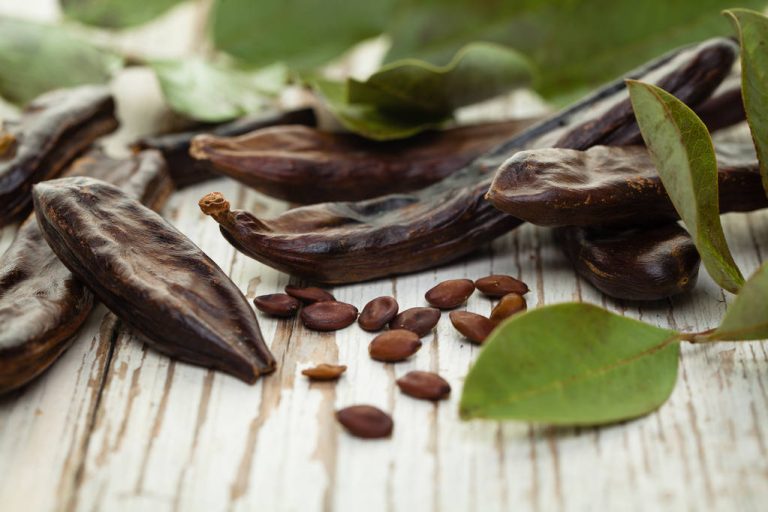Carob is the powder from the dried fruit of the carob tree. It is considered a healthy alternative to cocoa. But what is the health value of carob and what are the advantages and disadvantages of carob compared to cocoa?
The carob tree is widespread in the Mediterranean region and in the Near East and belongs to the legume family. Long, curved pods that are almost black in color hang from the branches. These are the fruits of the tree.
Each pod contains up to 15 seeds, separated from each other by the pulp, the so-called “carob”. In its regions of origin, carob is often eaten raw, but in local organic markets carob is mainly found dried and ground as a powder.
Carob powder has a fruity-sweet caramel flavor and can therefore serve as a tasty and less bitter alternative to cocoa. You can use carob the same way you use cocoa powder, for example to make hot “chocolate” or “chocolate” pudding or to bake a marble cake. In addition, carob powder has a few advantages that speak in favor of swapping out cocoa for carob from time to time.

Carob: that’s what makes it so healthy
Carob scores in several ways from a health perspective:
Carob is nutrient rich. It contains vitamins A and B as well as the minerals iron and calcium.
Carob is almost fat-free, but rich in dietary fiber and insoluble phytochemicals.
According to a study, this means that the consumption of a carob extract can cause a short-term reduction in blood lipid levels and boost fat burning.
The roughage together with the naturally contained sugar ensure that carob is a good supplier of energy.
Carob is also very low in calories: 100 grams contain around 255 kilocalories, while 100 grams of cocoa powder contain 350 kilocalories.
Unlike cocoa, carob does not contain any stimulating substances like caffeine or theobromine. So it is also suitable for children.

Conclusion: cocoa or carob – which is better?
Carob tastes sweeter and less bitter than cocoa, but can be used in the same way. Unlike cacao, carob does not contain any stimulating substances that some people are sensitive to. In addition, carob can be a more sustainable choice than cocoa: the carob tree is less sensitive, does not need as much water and also grows in southern Europe. From a health and ecological point of view, it is therefore worth trying carob as an alternative to cocoa.

